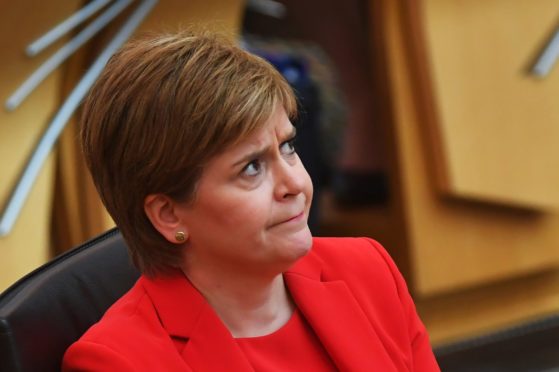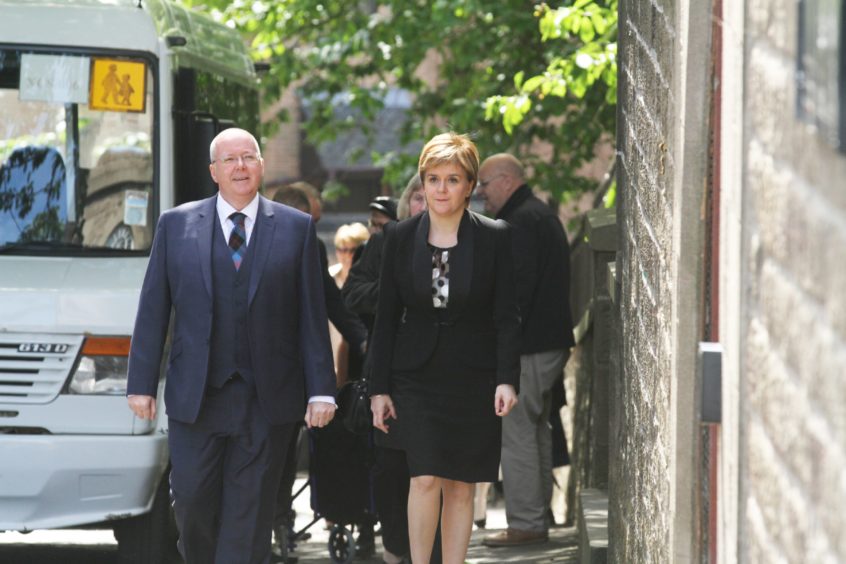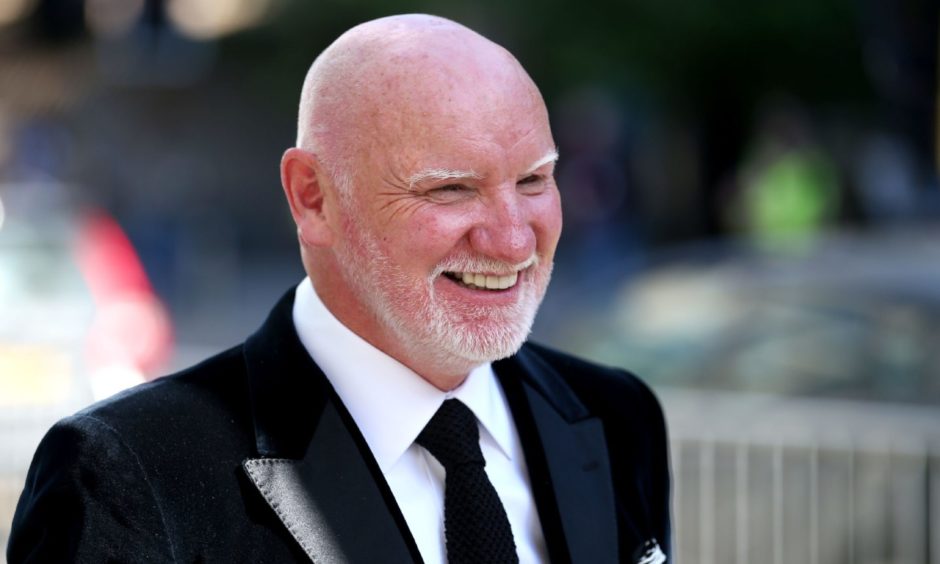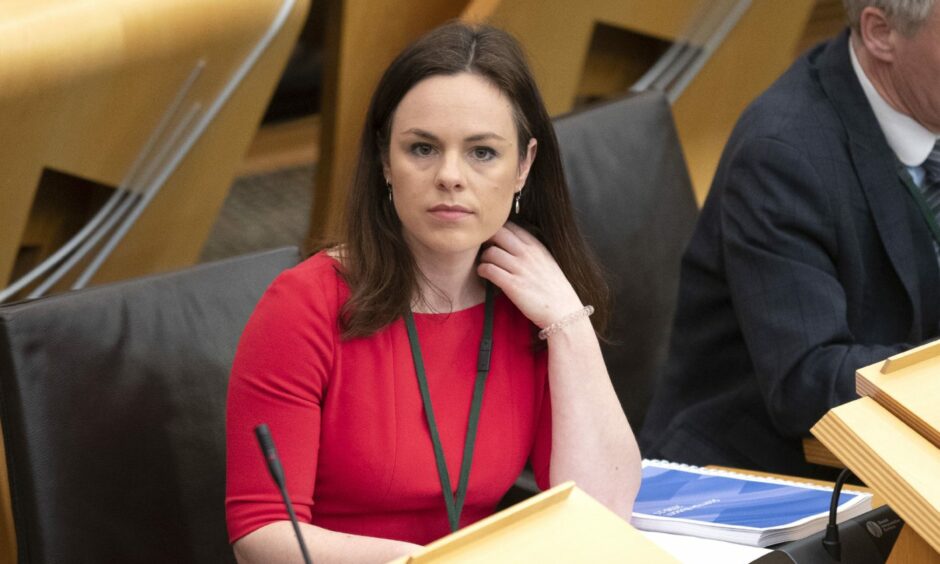Given the Scottish Government’s track record on transparency, it is tempting to believe new allegations of SNP sleaze and secrecy.
A newspaper probe has apparently uncovered hundreds of unrecorded meetings between ministers or their advisers and lobbyists over the course of 2020.
While not illegal, the government is said to have exploited loopholes in the lobbying laws, which demand that all engagements are registered and minuted unless the talks take place on the phone, by email or on WhatsApp.
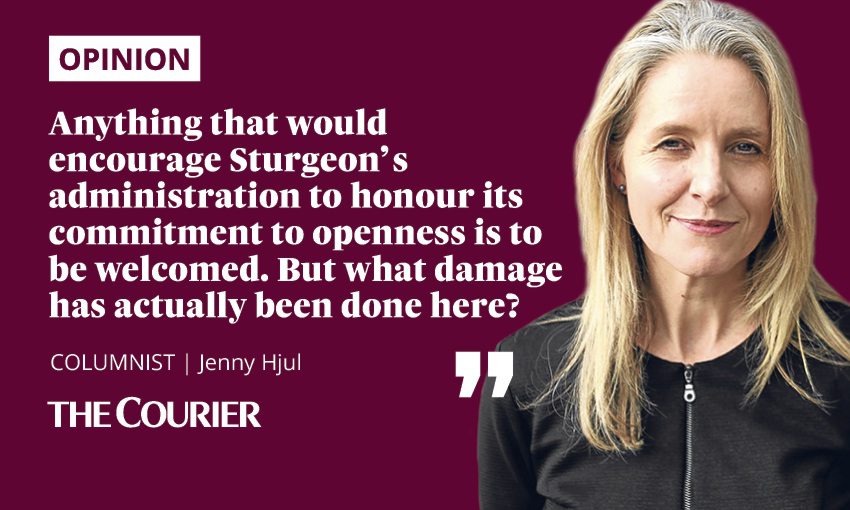
The SNP administration has made an art of dodging scrutiny, illustrated most spectacularly during the Salmond inquiry, when the First Minister notched up 50 “don’t knows”, rather than answer the questions put to her.
Her nearest and dearest, including her husband, Peter Murrell, the SNP’s chief executive, were arguably even more barefaced with their evasions.
In response to the new lobbying revelations, Scottish Labour business manager Neil Bibby said: ‘These shameless attempts to undermine the spirit of the lobbying act are all too typical from a government constantly avoiding any and all transparency.’
He also called for a review of the legislation to address its obvious inconsistencies.
Certainly, anything that would encourage Sturgeon’s administration to honour its commitment to openness is to be welcomed.
But what damage has actually been done here? Lobbying has got itself a bad name because of high profile incidents of cronyism whereby individuals are seen to benefit, usually financially, from their closeness to ministers.
But on the whole, this is not a dark art but a very necessary part of the political process.
Few politicians these days understand how business works. How many in the current SNP regime – or even in the parliament – have any commercial or industry experience?
SNP turned to billionaires
Details of some of the discussions in question show it was often organisations or individuals representing Scottish industries or businesses who were lobbying ministers.
The fact that some were extremely wealthy – billionaires, shock horror! – does not disqualify them from seeking to influence government.
Scottish Ministers reportedly “had telephone meetings regularly” with Sir Ian Wood and Sir Tom Hunter on topics from business to Covid-19 and renewables.
In the case of Hunter, social renewal, education and transport were also on the agenda.
Without having sight of the details, I would say this is a step in the right direction for the SNP.
Having made a mess of most of the above issues, how refreshing that they decided to take advice from people beyond their own inner circle of incompetence.
It was Hunter who urged the government to let business lead the Covid recovery.
If only Scottish ministers had listened to another billionaire, Jim McColl, of Clyde Blowers and formerly of Ferguson Marine Engineering, Scotland’s ferry fiasco may never have happened and the west coast would not have had to endure a transport crisis on top of the pandemic.
The Covid context surely justified a health minister holding ‘a series of calls’ with NHS suppliers
Which brings us to another crucial point about the lobbying briefings in question: they took place last year against the backdrop of lockdowns and great unknowns in terms of how to handle a potential public health disaster.
The Covid context surely justified a health minister holding ‘a series of calls’ with NHS suppliers between March 20 to 31.
And what could meetings between Finance Minister Kate Forbes and UK Hospitality Scotland boss Willie Macleod last November, when Scottish hospitality was on its knees, possibly have entailed other than a request for immediate support (which was later granted)?
I know that lobbyists within Scotland’s aquaculture sector sought help from ministers during the early months of the pandemic to ensure continued domestic food production when supermarket shelves were being stripped bare.
No doubt, other food producers did likewise, pressurising the relevant departments to enable them to operate with as little disruption as possible.
A Scottish government spokesman is quoted saying, in their defence, the Energy Minister “naturally met predominantly with energy stakeholders, with the Environment Secretary and Natural Environment Minister meeting with many environmental stakeholders over the same period”.
Lobbyists have their place
The investigation found no wrongdoing by any of the companies it highlighted and it appears that the gripes against all this lobbying have come mainly from the NGO community.
Richard Dixon, chief executive of Friends of the Earth, complained that while “big business doesn’t seem to have much trouble getting a meeting with ministers”, groups like his “rarely feature” in their diaries.
Personally, I would far sooner the government had its ear bent by the likes of Sandy Begbie, chief executive of Scottish Financial Enterprise and an adviser on getting thousands of kids into work, or by Benny Higgins, adviser on the Scottish National Investment Bank and the Advisory Group on Economic Recovery, than by eco campaigners with no solutions to Scotland’s most pressing challenges.
In fact, we ought only to be worried when Scottish ministers stop taking calls from lobbyists of this calibre.
